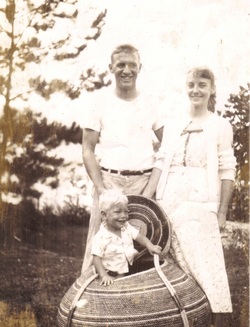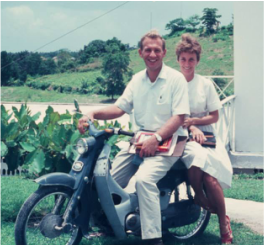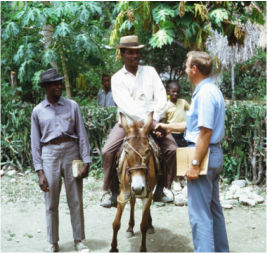About Us | Statement of Faith | Our Mission | Who We Are (US, Haiti, Board) | History | MEBSH, Our Partner in Haiti | Financial Stewardship | Affiliations and Business Sponsors | Media (Social Media, Pictures and Video, Promotional Materials) | Contact Us
|
A Brief History
In 1953, years before the Peace Corps started, and after her first year at Philadelphia Bible Institute, an 18 year old girl named Shirley Fry (Shoemaker) spent the summer in Haiti on a short term mission trip. Without preparation in Haitian culture, and no language or medical training, she and her companion were often sent with an interpreter to remote villages to hold simple clinics, children’s Bible clubs and various other ministries. Despite many hardships and sicknesses, she fell in love with the Haitian people. After a second trip to Haiti, she met her future husband, Herb Shoemaker, at The Kings College in New York. After marriage, in 1956, Herb attended Columbia Bible College and it was there that their son Dan was born. After graduating, and some basic training in missions and dental work, they went to Haiti as career missionaries. After a year of living and working among the Haitian people in the small desert village of Thomazeau, they transferred to Les Cayes, in the southern peninsula. There Herb served as the Director of Institute Biblique Lumiere, and Shirley served as Superintendent of Women. Among many other ministries, Herb established the TEE (Theological Education by Extension), a program which is still operating to this day. Another responsibility was to host various short term adult and youth teams that came from the US to visit and minister in Haiti. Although there was much accomplished during their visits, Herb and Shirley saw that there were significant issues and downsides to these kinds of teams. They had no prior training and were most often overwhelmed by what they saw and experienced. Even more troubling was the lack of a vehicle to provide follow-up and continued meaningful involvement and relationships – all a reminder to Shirley of her first summers in Haiti. When they returned to the US in 1972 (for their oldest son - Dan - to attend high school) they continued to ponder this need. Eventually as they prayed and studied the Word, God spoke clearly to them that the answer was the establishment of church to church partnerships that would present the possibility of more personal relationships that were in-depth, ongoing, and reciprocal. They began putting their thoughts in writing and out of that eventually sprang Reciprocal Ministries International’s Sister Church Program, at first called “Cross Cultural Reciprocal Caring” and now called “C3 Partnerships”. Their son, Dan, and Debbie Cosper graduated from Columbia Bible College (now known at Columbia International University), Columbia, SC, eventually married and were called to Haiti as career missionaries. Together with Herb and Shirley, they founded RMI in 1987, with Dan and Deb heading up the Haitian side of the ministry, including the receiving of Sister Church teams. Herb was appointed President of RMI and Shirley as Director of Communications. Together they operated the US side of RMI, procuring Sister Churches and sending US teams to Haiti. At that time the International Office was located in Miami, Florida. During this time they founded the RMI Retreat Center at Zanglais, Haiti to receive the visiting teams. In 2005, at the request of the Board, Dan was inaugurated as president of RMI and Debbie as Director of Communications. Herb retired as President in 2006 having served an added year as adjunct president to help in the transition. In May of 2006 Dan and Deb relocated to the US after 25 years in Haiti and moved the International Office to Lehigh Acres, FL. |




